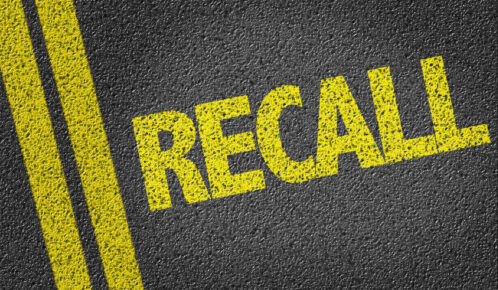You can file a personal injury claim for pesticide poisoning under the theory of product liability if you have been injured as a result of a pesticide manufacturer or seller’s actions. Examples include when a manufacturer does not provide sufficient safety warnings with a pesticide or does not properly test pesticides before sending them to the market. You must be able to show negative health effects from your exposure to pesticides.
Table of Contents

Filing a Personal Injury Claim for Pesticide Poisoning
Pesticides are often used to kill or repel plants, animals, and insects because they damage or invade buildings and crops, or spread disease. They are potentially harmful to humans, both through short-term and long-term exposure.
A pesticide lawsuit is one type of personal injury claim. Damages you might be able to collect include medical bills (past and future), loss of income, emotional distress, pain and suffering, loss of consortium, and wrongful death. You may be able to receive punitive damages if the defendant(s) acted especially heinously. Punitive damages are supposed to deter similar behavior in the future.
When your lawyer evaluates your pesticide claim, he or she also looks for related issues such as nuisance and trespass claims. It is not uncommon for pesticides to drift onto a person’s property from another source.
Common sources of pesticide exposure include contaminated groundwater, contaminated drinking water, and contaminated fruits, vegetables, and other food products. Government agencies may have used pesticides in public parks you frequent, or perhaps you live or work near a farm with pesticide drift or liquid runoff.
Work is a major place for pesticide exposure. Farms, factories, and many companies deal in chemicals and pesticides. Even in office settings, corporations might treat their offices with pesticides that the daily workers touch or inhale. Pesticide exposure is also possible by landscapers, neighbors, landlords, and homeowners.
Statute of Limitations for Pesticide Lawsuits
In Illinois, the statute of limitations for a personal injury or wrongful death claim is two years. With wrongful death, the two years begin on the date of death. In most personal injury cases, it begins when the injury occurred or when you became aware of it.
A personal injury claim for pesticide poisoning can be murkier than, say, a car accident case as far as timeframes go. It is essential to contact lawyers as soon as you suspect something amiss. Most personal injury and product liability lawyers offer free consultations, so you do not have anything to lose by discussing your situation with a personal injury lawyer.
Proving a Pesticide Product Liability Case
A successful pesticide product liability case can identify the chemical that caused the injuries and the link between the chemical and the injuries (health issues). Doing both of these things is rarely straightforward.
First, many victims exposed to pesticides have been exposed to many chemicals in multiple pesticides. Farmers and factory workers work with all types of chemicals, for example. Identifying one harmful chemical among many is tricky.
As for linking the chemical and adverse health effects, the serious complications of exposure can take years to manifest. They also may have multiple causes. Cancer can be caused by many things, not just pesticides.
The long-term exposure effects of pesticides can include various cancers, endocrine system disruptions, developmental toxicity, reproductive harm, birth defects, and immunotoxicity. Reproductive harm includes stillbirths, spontaneous abortion, infertility, and birth defects. Infants, young children, pesticide applicators, and farmworkers are more susceptible to pesticide exposure, too.
The Environmental Protection Agency’s Recognition and Management of Pesticide Poisonings helps healthcare providers diagnose and treat pesticide poisoning. This type of poisoning can appear similar to colds, the flu, and even heat exhaustion, among other conditions.
The good news is that three chemicals comprise most pesticides, and each chemical has its own distinct (yet similar) set of effects. Organophosphates are in many insecticides and herbicides to kill weeds and insects. Poisoning symptoms include abdominal cramps, breathing issues, blurred vision, nausea, muscle twitching, and even seizures, and loss of consciousness.
Carbamates are similar to organophosphates in that they act like nerve gas to disrupt the brain and nervous system. Carbamates are chemicals in many insecticide baits and sprays. Its symptoms are similar to the ones from organophosphates. High blood pressure is possible, too.
Pyrethrins/pyrethroids are chemicals in many insect sprays. They can cause skin and eye irritation, nausea, dizziness, seizures, headaches, muscle twitches, and fluid in the lungs.
Proving Your Case
To prove a pesticide product liability case, your lawyer looks at the elements of a tort claim. These elements are fourfold. You must show a duty of care and a breach of the duty of care, that the plaintiff suffered injuries, and that the injuries stemmed from the duty of care breach.
The manufacturers, sellers, and users of pesticides have the duty to promote their safe use and follow legal requirements. It is legal to sell potentially harmful substances such as pesticides, but manufacturers must provide adequate warnings. Warnings should be prominent and clear enough for average consumers to heed them properly.
The defendant(s) may argue that the plaintiff used the pesticide in a way no one could have foreseen, or that the adverse health effects are unrelated to the use of that specific pesticide at that specific time. Defendants may also contend that plaintiffs knowingly put themselves into the situation they did and assumed responsibility for the heightened risk of danger.
Defendants to a personal injury claim for pesticide poisoning may also argue that the plaintiff is responsible for the pesticide exposure and the adverse health effects. Illinois does not allow people to seek compensation if they are more than 50% responsible for “accidents.” This is called modified comparative negligence for the recovery of damages.



